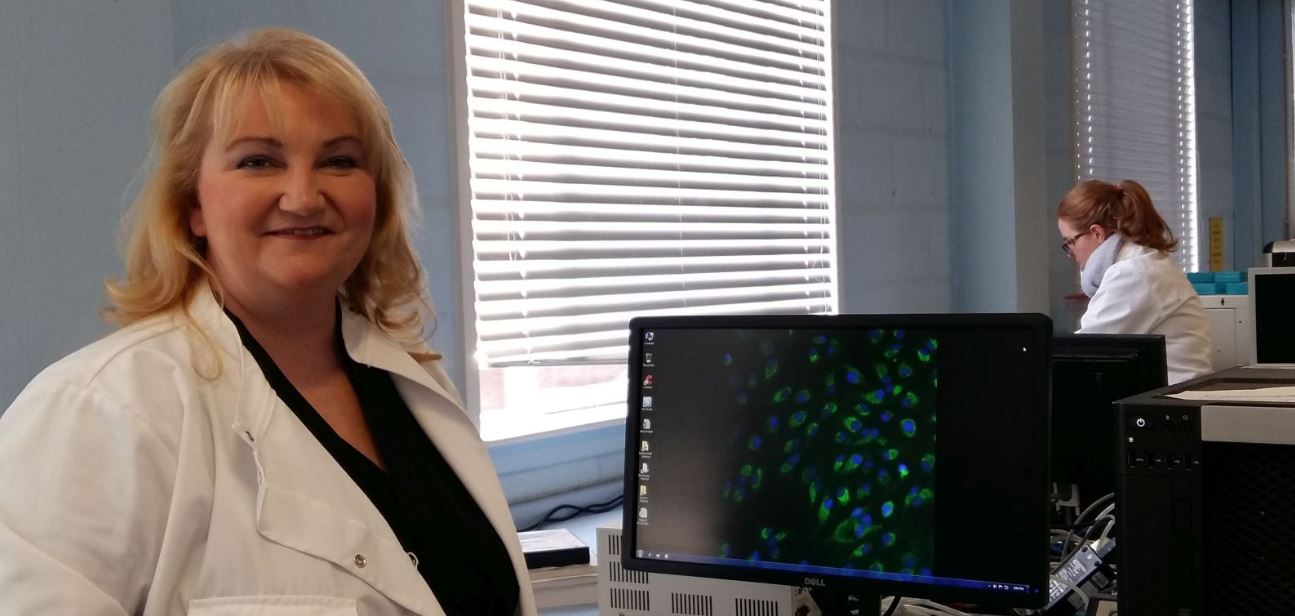€4M BID TO REDUCE IMPACT OF CHEMICALS ON LONG-TERM HEALTH 
08 December 2016
A Queen’s expert, Dr Lisa Connolly, is leading a €4m international initiative to investigate whether natural toxins and man-made chemicals are creating potentially dangerous mixtures that affect our natural hormones and cause major illnesses such as cancer, obesity, diabetes or infertility.
The chemicals include natural fungal toxins which can contaminate food and man-made chemicals such as pesticides.
Dr Connolly, a leading academic in Toxin Food Safety and an expert in the Bioassay Analysis of Endocrine Disruptors at the University’s Institute for Global Food Security, will lead the European Commission Funded study. In the course of the study, Dr Connolly will collaborate with global experts in an international consortium involving thirteen organisations across nine countries including Norway, Chile and India, to tackle the world-wide challenge.
The four-year Marie Curie Innovative Training Network project PROTECTED (PROTECTion against Endocrine Disruptors) begins in January 2017 and the search is already underway for 15 early stage staff who will be trained as world-class researchers that can develop innovative and entrepreneurial ways of dealing with this global challenge.
Dr Connolly said: “Currently there is a world-wide shortage of researchers who can assess the impact of potentially dangerous natural and man-made endocrine disrupting chemicals and their mixtures on the hormone system which controls important functions within the body such as growth, development and fertility. We also need to understand whether these chemicals can cause illness by damaging the health of good bacteria in the gut.”
“Endocrine disruptors are suspected factors and sometimes proven agents behind several major human diseases, poor productivity in agricultural animals and stress upon ecosystems. If we can identify chemicals and mixtures of concern, we can use this knowledge to inform legislators, improve monitoring and reduce exposure.”
Queen’s will be awarded €1.2m of the funding with three researchers based at its world-leading Institute for Global Food Security. With its excellent academic record in food security and health, Queen’s is ideally suited for co-ordinating the project, further strengthening its leadership position in this field internationally.
Dr Connolly added: “The exact effects of endocrine disruptors are difficult to assess so far because of the complexity of the chemical mixtures involved and the lack of efficient methods to assess their effects.
“This newly established consortium is an exciting opportunity as it provides unique, world-leading and cutting-edge training for a new generation of experts who will have the ability to develop innovative analysis tools which will help protect the world from the real-life risks of these chemicals, improving health now and in the future.”
For further information please visit the Project Website: http://protected.eu.com/
Media inquiries to Emma Gallagher, Communications Officer at Queen’s University on +44 (0)28 9097 5384.
Back to Main News
Top of Page